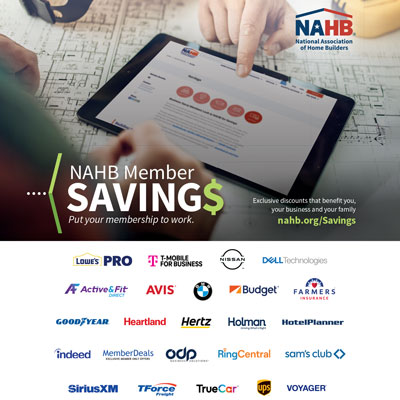9 Questions To Ask When Choosing A New Home Lot
Category: Member-Features09/20/2019
by: Abbey Benson, Marketing Director EagleRidge Companies
When building your new home, location is everything. You want to be near what is important to you. Whether it be schools, parks, restaurants or work – they are all things to keep in mind. Not only is location vital, but it is also important to consider and ask the following questions!
1). What does the development offer?
If you have kids, you probably want to live somewhere near playgrounds and schools. If you live an active lifestyle, you may want to have access to trails for walking, biking and jogging. Look at the neighborhood and see if it fits your lifestyle. If you seek a specific view or style lot, you may have to shop around a bit more.
2). Does the development have a homeowner’s association?
If your community has a homeowner’s association, there may be a small fee that will be used to cover the overall landscaping and maintenance of the development. Some associations will include yard work and snow removal for your property, while others may not.
3). Is the lot out of the flood plain? Will the lot location require a flood proof foundation?
Before purchasing a lot, look into possible flood plain requirements to ensure you are aware of future expenses. If you mortgage your home and it is located in the flood plain, flood insurance will be required and can be costly. It may be possible to raise the lot, taking your home out of the flood plain, but the city may still require you to use a flood proof foundation, adding $10,000 or more to the cost of the house.
4). What are the special assessments and taxes like?
Special assessments and taxes make a huge difference in the overall cost of the house. To find out what the current special assessments and taxes are, you can visit the city or county's parcel search on their website or contact city officials directly. It is possible that additional specials could arise as the surrounding area grows.
5). What size home can you fit on the lot?
Some developments will have larger lots for more expensive homes while others will offer smaller lots for less expensive homes. You want to be sure the size of the lot fits your home, so consider finding your floorplan before finding your lot. There will be setback requirements and easements that will affect your home's overall footprint.
6). What are the covenants for the development?
Take a look at the development’s covenants as this is where you will find the rules, regulations and restrictions for the community. The covenants give the developer or homeowner’s association some control on the overall look and feel of the community. Some common restrictions and requirements involve landscaping, fencing, shed allowances, storage of boats and campers, basketball hoops and the use of antennas.
7). How is the lot situated?
Pay attention to how the sun will affect your home. If you want a patio with a sunset view, be sure your patio is facing west. If you want a lot of day sun in the front of your home, face it south. Additionally, if your home is situated properly for winter and summer months, you could end up saving on heating and electric bills. While the light is important, so is paying attention to where the lot is situated in the development. Homes on a corner may experience more traffic but generally have more yard space. If you are at the end of a T-intersection, you may receive headlights coming towards your windows in the evening, but the lot may be more affordable. Other items to consider are lot slope, what was there before you purchased it (in case there are environmental concerns), and what the future maintenance of the lot will be.
8). How is the undeveloped land around the lot zoned?
If you are in a new part of town, there may be a lot of undeveloped land around you: look at its zoning restrictions if you do or don’t want to be near a busy commercial area. The city will usually have all this information on their website.
9). What is the price?
Finally, a very important aspect to purchasing a lot is the price. It may be difficult to know if the lot is priced high or low but expect that the lot will cost you about 20-25 percent of your total home purchase price. However, it will vary depending on where you live. A good rule of thumb is to divide what you expect to pay for your home by .20 to .25. For example, if you want to build a $300,000 home, you should expect to pay between $60,000 to $75,000 for the lot. Building a new home is a fun and exciting time.
Hopefully after asking these questions you will be able to find the perfect development to build a new home for you and your family. You can see all kinds of developments and communities during the Fall Parade of Homes. Visit paradefm.com for details.
Hopefully after asking these questions you will be able to find the perfect development to build a new home for you and your family. You can see all kinds of developments and communities during the Fall Parade of Homes. Visit paradefm.com for details.

About Abbey:
Abbey Benson joined EagleRidge Companies as an intern in 2015. In 2017, she joined the team full time as the marketing director. Benson promotes EagleRidge Companies' brand through various outlets, such as social media and print media. She also conducts research for the company so they can better understand the industry’s market. Benson graduated from Concordia College in Moorhead with a major in business with concentrations in marketing and organizational leadership and a minor in english-writing.
Abbey Benson joined EagleRidge Companies as an intern in 2015. In 2017, she joined the team full time as the marketing director. Benson promotes EagleRidge Companies' brand through various outlets, such as social media and print media. She also conducts research for the company so they can better understand the industry’s market. Benson graduated from Concordia College in Moorhead with a major in business with concentrations in marketing and organizational leadership and a minor in english-writing.






